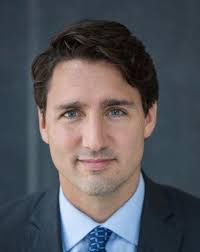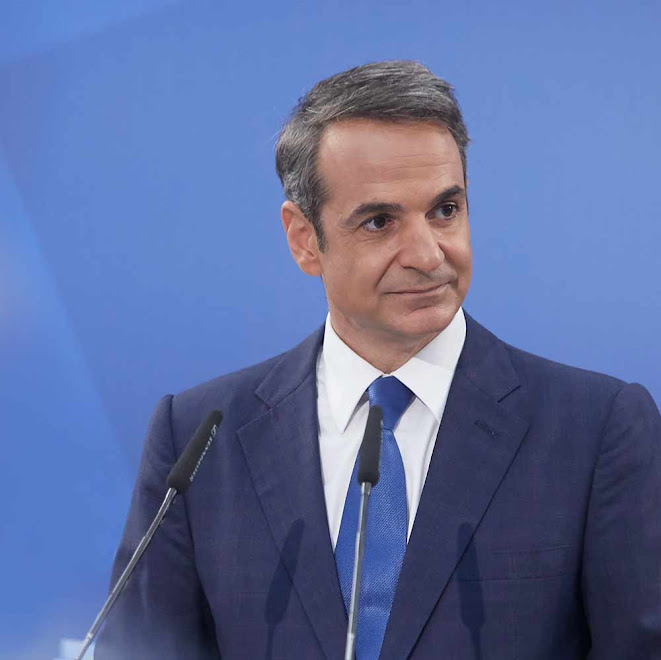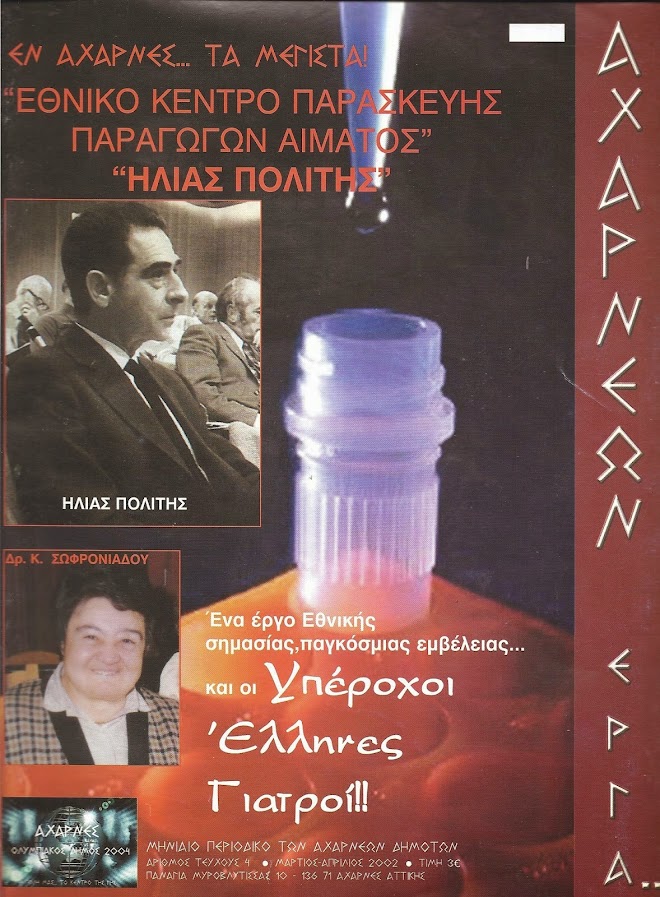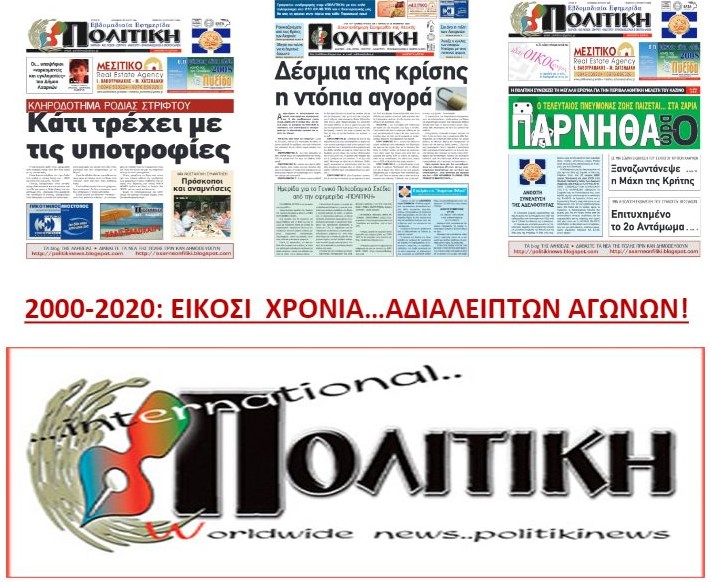| ● Council of the EU | | | 03/10/2022 17:38 | Press release | | | | | The European Union welcomes this 12th meeting of the EU-Israel Association Council. The EU attaches great significance to its close relations with the State of Israel and reiterates the importance of further developing our broad bilateral partnership through comprehensive political dialogue and cooperation to unlock the full potential of EU-Israel relations. The EU trusts that the resumption of the Association Council will pave the way for the resumption of other meetings that are essential for further developing a fruitful and comprehensive relationship, notably the Association Committee as well as the EU-Israel Political Dialogue and the informal working groups on human rights and international organisations, which were last held in 2016. The EU notes with satisfaction the regular and numerous meetings of the subcommittees which have been held under the Association Agreement and the cooperation in the framework of the European Neighbourhood Policy Action Plan, whose validity has been extended by the Council in January 2022 for further three years to give the EU and Israel the full opportunity to take forward their cooperation, including through possible negotiation of partnership priorities. Read the full text of the statement |
|
|
| ● Council of the EU | | | 03/10/2022 14:15 | MEETING | | | | | The Council will discuss the economic situation and high energy prices. It will aim to agree its position on the REPowerEU proposal. It will also approve conclusions on climate finance ahead of COP 27. |
ONGOING
Council of the EU
Economic and Financial Affairs Council, 4 October 2022
Live streaming
Live streaming
4 October 202208:00 Arrivals
10:10 Public session
14:30 Press conference
Estimated schedule
Agenda highlights
Energy prices and REPowerEU
EU economy and finance ministers will exchange views on high energy prices and financial markets, following a presentation by the Commission on the state of play.
The Council will discuss the proposed regulation on REPowerEU chapters in recovery and resilience plans with the aim of agreeing a Council position (general approach) on the text.Energy prices and security of supply (background information)
Economic situation
The Commission will present the review report on the implementation of the Recovery and Resilience Facility. This will be followed by an exchange of views. The Council is expected to adopt its implementing decision under the Recovery and Resilience Facility as regards the national plan of the Netherlands.A recovery plan for Europe (background information)
Russia’s war against Ukraine
The Council will discuss the economic and financial impact of Russia's aggression against Ukraine.EU response to Russia's invasion of Ukraine (background information)
G20
The Council is expected to approve the EU terms of reference and statement to the International Monetary and Financial Committee (IMFC), in the context of preparations of the G20 meeting of finance ministers and central bank governors of 12-13 October 2022 and the IMF annual meetings.
Climate finance
The Council will aim to approve conclusions on climate finance ahead of the 27th Conference of the Parties (COP 27) to the United Nations Framework Convention on Climate Change (UNFCCC) in Sharm El-Sheikh on 6-18 November 2022.Financing the climate transition (background information)
Customs
The Council will discuss the fiscal and non-fiscal role of the EU customs.
Financial services
The Presidency will inform ministers on the state of play as regards current legislative proposals in the field of financial services. In addition, the Commission will inform ministers on the status of the implementation of existing financial services legislation.Capital markets union (background information)
Digital finance (background information)
Eurogroup
In the margins of Ecofin, a Eurogroup meeting will take place on Monday 3 October 2022 at 15h.
Meeting information
Meeting n°3898
Luxembourg
4 October 2022
10:00
Preparatory documentsProvisional list of A items, addition 2
List of A items, legislative deliberations
List of A items, non-legislative activities
Provisional agenda
Background brief
Outcome documentsList of participants
Meeting voting results |
|
| ● Eurogroup | | | 03/10/2022 20:49 | Statements and remarks | | | | | We are all very much aware of the economic context to the October Eurogroup meeting. Energy bills continue to rise. We know that citizens, households and businesses continue to look to finance ministers and governments regarding what we can do to help address the rising cost of living. This indeed is one of our responsibilities as finance ministers individually, but of course also collectively. And that is why the Eurogroup meets to look at what our collective response can be with our shared currency. We were very grateful to welcome Mathias Cormann, the Secretary-General of the OECD, for his presentation of the latest insights on the economic outlook and our recommendations regarding how we can tackle the rising price of energy. Given the severity of this challenge, ministers have been taking emergency measures that can be easily and rapidly deployed, many of which have been broad based. These measures have provided timely support, but we acknowledged in a Eurogroup statement the fact that they weigh increasingly on national budgets and could have the risk of delaying the energy transition. Therefore, we agreed today in our joint statement to focus our support on measures that are cost efficient, focus on income, can be temporary and, where possible, targeted on the most vulnerable in our societies. We also need to avoid policies that could add risks of inflationary pressures, because our experience reminds us that going down this road can make our societies poorer for longer. This guidance will need to be reflected in national budgets for next year, and we will come back to this issue shortly in the context of the Draft Budgetary Plans. We also reiterated the need to speed up our reduction of energy consumption, which is critical to stabilising energy prices and reducing our reliance on Russian fossil fuels. Last week energy ministers agreed important steps in that direction. It is also important to foster investments in energy efficiency, the diversification of energy sources and the development of low-carbon energy. The second item we looked at was the implementation of euro area priorities in the Recovery and Resilience Plans. We all acknowledged the benefits of the Recovery Fund in implementing investments and reforms to enhance the resilience of the euro area, boost economic growth and promote convergence. This instrument is more relevant than ever. We recognise that policy priorities have shifted. Given the geopolitical and economic context, we need to act urgently on the energy transition. That is why I strongly support the efforts of the Czech Presidency to reach a swift agreement on the additional €20 billion envelope to the recovery fund through REPowerEU, which we will be discussing tomorrow morning at ECOFIN. Third, we had a discussion on global issues and exchange rates ahead of the meetings that many of us will be attending next week in Washington. I should announce in this context that I have invited my Eurogroup colleagues to an exchange of views with Treasury Secretary Yellen on the 13th of October in Washington DC, which will build on the success of the meeting that we had with Secretary Yellen in Brussels last year. When war is raging on our continent it is essential to further cement the strong relationship that we have with trusted and vital partners such as the United States. Eurogroup looks forward to this meeting. The final issue were our discussions with regard to the digital euro. We are continuing with our discussion on this vital project. We received further updates from our institutions on this work, and we discussed how we can build on the strengths of the private and public sector with regard to a future ecosystem for the digital euro. We acknowledged today that the success of this project will depend on finding a balance on the various dimensions, such as convenience for end users, cross-border usability and privacy arrangements. In this regard, some harmonisation of rules of standards and interfaces could help foster innovation and ensure a consistent user experience of the digital euro across all of the euro area. The president of the ECB also informed us that the Governing Council endorsed a first set of design features for the digital euro. These concern aspects such as privacy, use cases for a digital euro and the possible offline functionality of this digital future, all of which have been part of our regular discussions at the Eurogroup. We are going to continue our exchanges as the investigation phase of the project advances. I want to conclude with an update on the appointment process for the new managing director of the ESM. The term of Klaus Regling comes to an end on 7 October, this Friday. We started the selection process for a new managing director with four excellent candidates, but none of them was able to meet the very high threshold of 80% of votes cast. I updated colleagues today on my continuing efforts with regard to this process and the need to ensure continuity at the helm of the ESM and the steps that we need to put in place to ensure that this can happen. Accordingly, I will be convening a Board of Governors meeting of the ESM this Thursday, 6th October, to provide a further update to the Board of Governors on where this process stands. Last but not least, this will be the final time I will be sharing a platform with Klaus Regling. I want to acknowledge his extraordinary contribution, and we will have an opportunity to thank him a little bit more later this evening. |
|
|
| ● Council of the EU | | | 04/10/2022 11:14 | Press release | | | | | Today, the Council adopted a regulation which strengthens the prudential regulatory framework for credit institutions operating in the Union. The ‘Daisy Chain’ regulation introduces targeted adjustments that improve the resolvability of banks. It helps to ensure that banks remain resilient and capable of withstanding shocks. "As the economic fall-out of Russia’s aggression against Ukraine shows, it is of key importance to ensure the stability of the European financial sector. The new rules which we have adopted today will ensure that we have stable and resilient banks without imposing a significant increase in capital requirements on them. Even complex banking groups will be better prepared to withstand present and future shocks."
Zbyněk Stanjura, Minister of Finance of Czechia This revised Union bank resolution framework aims to better ensure that the loss absorption and recapitalisation of banks occurs through private means when those banks become financially unviable and are placed in resolution. BackgroundOn 28 October 2021 the Commission presented the ‘Daisy Chain’ proposal. It is part of the single rulebook of the Banking Union and amends the rules in the Capital Requirements Regulation and the Bank Recovery and Resolution Directive. Regulation (EU) No 575/2013 of the European Parliament and of the Council (the Capital Requirements Regulation or CRR) establishes together with Directive 2013/36/EU of the European Parliament and of the Council (the Capital Requirements Directive or CRD) the prudential regulatory framework for credit institutions operating in the Union. This banking prudential framework is complemented by rules on the resolution of banks, i. e. the orderly exit of all or parts of a banking business to avoid the destructive impact of bankruptcies where relevant and possible. The last update to the banking resolution framework (‘BRRD2’) entered into force in 2019, but issues had later been identified, calling for additional fixes. The Daisy Chain proposal aims to address those issues. The Council adopted its negotiating mandate on 21 December 2021. The European Parliament adopted its negotiating position in mid-February 2022. Trilogues between the co-legislators started on 31 March 2022 and ended in agreement on 28 April 2022. Today’s formal adoption of the regulation is the final step in the process. Daisy chain regulation Daisy chains: provisional agreement on a revised bank resolution framework (press release, 28 April 2022) Banking Union (background information) |
|
|
| ● Council of the EU | | | 04/10/2022 11:28 | Press release | | | | | Today, the Council agreed its position (general approach) on the REPowerEU proposal, a plan to phase out the Union’s dependency on Russian fossil fuel imports. It aims to strengthen the strategic autonomy of the Union by diversifying energy supplies and boosting the independence and security of the Union’s energy supply. In practical terms, the proposal seeks to add a new REPowerEU chapter to EU member states’ national recovery and resilience plans (RRPs) under NextGenerationEU, in order to finance key investments and reforms which will help achieve the REPowerEU objectives. "Today we achieved a major step forward in strengthening Europe’s autonomy from Russia’s fossil fuels. I want to thank my colleagues for agreeing to significant concessions in order to reach this Council compromise position. Given the geopolitical context since Russia started its military aggression against Ukraine, and given the latest attacks on energy infrastructure in Europe, I am sure it is necessary to push for a fast agreement on this proposal. And the Czech Presidency is fully determined to deliver on our promise to radically overhaul the Union’s energy sector and end our dependence on Russian fossil fuel imports."
Zbyněk Stanjura, Minister of Finance of Czechia In its position, the Council modifies the origin of the funds for REPowerEU as well as the allocation key of the additional € 20 billion proposed by the European Commission. As regards the sources of financing of the additional € 20 billion, instead of auctioning from the EU Emissions Trading System (ETS) Market Stability Reserve, the Council opts for a combination of sources: the Innovation Fund (75%) and frontloading ETS allowances (25%). The Council’s aim is to not disrupt the functioning of the EU ETS system while ensuring a credible revenue stream. The Council modifies the allocation key by introducing a formula which takes into account cohesion policy, member states’ dependence on fossil fuels and the increase of investment prices. In its position, the Council limits the obligation for member states to submit the REPowerEU chapter only to cases where they wish to request RRP additional funding in the form of RRF loans from NGEU, non-repayable support from new revenue or newly transferred resources from shared management programmes and thus not upwards updates of maximum financial contribution. In addition, the Council allows including in the dedicated REPowerEU chapter measures of the Council Implementing Decision that are no longer achievable in case of a downward June 2022 update of a maximum financial contribution. Furthermore, the Council clarifies that member states shall be able to request loan support until 31 August 2023. In its position, the Council also includes the possibility of voluntary transfers from the Brexit Adjustment Reserve (BAR), as well as from the Just Transition Fund (JTF). Concerning possible derogations from the ‘do-no-significant-harm’ principle for investments improving the energy infrastructure and facilities to meet immediate security of supply needs for oil and gas, a careful balance was struck which aims to limit the additional administrative burden for member states. The Council does oblige member states to provide a justification to the Commission when they wish to derogate from the 'do-no-significant-harm' principle. BackgroundOn 18 May 2022, the European Commission proposed the ‘REPowerEU’ package which modifies the Recovery and Resilience Facility (RRF) regulation and other legislative acts. It provides for targeted amendments to finance investments and reforms with the objective of diversifying energy supplies and reducing dependence on fossil fuels. This will be achieved by adding in the RRPs dedicated chapters including new reforms and investments and ensuring synergies and complementarity between measures funded under the RFF and actions supported via other national or Union funds. In concrete terms, the legislative proposal submitted in conjunction with the REPowerEU plan aims at making the RRF the strategic framework for REPowerEU initiatives, maximising complementarity, consistency and coherence of policies and actions taken to accelerate the reduction of dependence on fossil fuels and mitigate its socio-economic costs and impacts during the transition. The Commission proposal introduced: 1) Amendments of the RRF regulation: - An increase in the RRF financial envelope with € 20 billion in grants from the sale of EU Emission Trading System allowances. The allocation key related to distribution of these new funds among the 27 member states remains the same as in the original RRF regulation (reflecting impact of COVID-19 crisis on the economies of the member states);
- An obligation for the member states modifying their RRPs to also submit a dedicated REPowerEU chapter;
- A targeted exemption from the obligation to apply the do-no-significant-harm (DNSH) principle for reforms and investments improving energy infrastructure to meet immediate security of supply needs for oil and gas;
- An obligation to communicate to the Commission within 30 days after the entry into force of the regulation, whether member states intend to request loan support to enable the possibility to reallocate loans, including increasing the maximum amount in exceptional circumstances;
- A new assessment criterion catering for the specific objectives of REPowerEU;
- Reporting obligations regarding the REPowerEU chapter
2) Amendment of decision (EU) 2015/1814 prolonging the current intake rate of allowances to the Market Stability Reserve until 2030 and providing a possibility to release and auction a portion of allowances held therein and allocate the generated revenue towards the RRF. 3) Amendment of directive 2003/87/EC establishing modalities for the auctioning of allowances released from the Market Stability Reserve and transfer of the generated € 20 billion revenues to the Recovery and Resilience Facility. 4) Amendment of regulation (EU) 2021/1060 providing a possibility for member states to transfer up to 7.5% of their national allocation to the RRF, in addition to the existing 5% transfer possibility, to support reforms and investments included in the REPowerEU chapter. 5) Amendment of regulation (EU) 2021/2115 providing a possibility for member states to deliver part of the European Agricultural Fund for Rural Development (EAFRD) through the RRF, to support reforms and investments included in the REPowerEU chapter. Now that the Council has set its position on the proposal, it is ready to start trilogues with the European Parliament in order to agree as soon as possible on a final version of the text. Council position A recovery plan for Europe (background information) Energy prices and security of supply (background information) |
|
|
| ● Council of the EU | | | 04/10/2022 11:55 | Press release | | | | | The EU continues to promote fair tax competition and address harmful tax practices. The Council today decided to add Anguilla, The Bahamas and Turks and Caicos Islands to the EU list of non-cooperative jurisdictions for tax purposes. With these additions, the EU list now consists of 12 jurisdictions: - American Samoa
- Anguilla
- The Bahamas
- Fiji
- Guam
- Palau
- Panama
- Samoa
- Trinidad and Tobago
- Turks and Caicos Islands
- US Virgin Islands
- Vanuatu
The Council regrets that these jurisdictions are non-cooperative on tax matters and invites them to engage with the EU’s Code of Conduct Group in order to resolve the identified issues. Turks and Caicos Islands are listed for the first time. The Bahamas were already once listed in 2018, and Anguilla once in 2020. "Fair taxation of businesses benefits all of us. This is why the EU and international partners share a common interest in fighting tax base erosion and profit shifting. I believe all 12 countries on the list will deliver on their commitments and carry out the necessary reforms in the field of taxation as soon as possible, so that they can be deleted from this list when we will next revise it in 6 months time."
Zbyněk Stanjura, Minister of Finance of Czechia Reasons for adding Anguilla, The Bahamas and Turks and Caicos IslandsThis revised EU list of non-cooperative tax jurisdictions (Annex I) includes countries that either have not engaged in a constructive dialogue with the EU on tax governance or have failed to deliver on their commitments to implement the necessary reforms. Those reforms should aim to comply with a set of objective tax good governance criteria, which include tax transparency, fair taxation and implementation of international standards designed to prevent tax base erosion and profit shifting. The reason for the inclusion of Anguilla, The Bahamas and Turks and Caicos Islands in the list is that there are concerns that these three jurisdictions, which all have a zero or nominal only rate of corporate income tax, are attracting profits without real economic activity (criterion 2.2 of the EU list). In particular, they failed to adequately address a number of recommendations of the OECD Forum on Harmful Tax Practices (FHTP) in connection to the enforcement of economic substance requirements, something to which they committed earlier this year. The Code of Conduct Group, which prepares the updates of the list, is cooperating closely with international bodies such as the FHTP to promote tax good governance worldwide. State of play document (Annex II)In addition to the list of non-cooperative tax jurisdictions, the Council approved the usual state of play document (Annex II) which reflects the ongoing EU cooperation with its international partners and the commitments of these countries to reform their legislation to adhere to agreed tax good governance standards. Its purpose is to recognise ongoing constructive work in the field of taxation, and to encourage the positive approach taken by cooperative jurisdictions to implement tax good governance principles. The commitment of Bermuda with regard to the OECD FHTP recommendations on the effective implementation of substance requirements was deemed fulfilled, resulting in the deletion of the reference to this jurisdiction in the state of play document. Furthermore, Tunisia completed its commitment relating to the country-by-country reporting minimum standard (BEPS action 13) and has consequently been deleted from the relevant section in Annex II. Costa Rica fulfilled its commitment to amend its Special Economic Zones regime, which was considered harmful by the FHTP, and ceases to appear in this section. The reference to this jurisdiction under the section pertaining to foreign-source income exemption (FSIE) regimes is however maintained. The deadline for fulfilling this commitment (which was also made by four other jurisdictions) is 31 December 2022. Annex II also features two new commitments in the context of the work of the FHTP on harmful preferential tax regimes: both Armenia and Eswatini committed to abolish or amend their preferential tax regimes by 31 December 2023. The rest of Annex II remains unchanged. BackgroundThe EU list of non-cooperative jurisdictions for tax purposes was established in December 2017. It is part of the EU’s external strategy on taxation and aims to contribute to ongoing efforts to promote tax good governance worldwide. Jurisdictions are assessed on the basis of a set of criteria laid down by the Council. These criteria cover tax transparency, fair taxation and implementation of international standards designed to prevent tax base erosion and profit shifting. Work on the list is a dynamic process. Since 2020, the Council updates the list twice a year. The next revision of the list is scheduled for February 2023. The list is set out in Annex I of the Council conclusions on the EU list of non-cooperative jurisdictions for tax purposes. The conclusions also include a state-of-play document (Annex II) identifying cooperative jurisdictions which have made further improvements to their tax policies or related cooperation. The Council’s decisions are prepared by the Council's Code of Conduct Group which is also responsible for monitoring tax measures in the EU member states. The Chair of the Group maintains regular dialogue with jurisdictions concerned. More information on its work is published in the Code of Conduct Group report to the Council. Council conclusions on the revised EU list of non-cooperative jurisdictions for tax purposes Code of Conduct Group report to the Council EU list of non-cooperative jurisdictions (background information) Code of Conduct Group (Business Taxation) |
|
|
| ● European Council | | | 04/10/2022 12:14 | Media advisory | | | | | The press briefing ahead of the meeting of the European Political Community and the Informal meeting of EU heads of state or government will take place on Wednesday, 5 October at 11.00. This briefing will be "off the record". The press briefing will take place in a hybrid format: EU accredited journalists will be able to participate and ask questions either remotely or in person at the Europa building press room. To attend the event remotely, please use this link to register and have the possibility to ask questions. Those who already registered for the previous high-level press events do not need to do it again. - Deadline for registration: Wednesday, 5 October 2022, 10.00
Further instructions will be sent to all registered participants shortly after the deadline. |
|
|
| ● Council of the EU | | | 04/10/2022 13:19 | Press release | | | | | Economy and finance ministers welcomed the positive assessment of the national recovery and resilience plan of the Netherlands by the European Commission. The Council adopted its implementing decision on the approval of this plan today. The Council’s decision follows the European Commission’s assessment of the national recovery and resilience plans. These plans have to comply with the 2019 and 2020 country-specific recommendations and reflect the EU’s general objectives of creating a greener, more digital and more competitive economy. The Dutch plan also addresses some of the 2022 country-specific recommendations that were adopted by the Council in July 2022. Following the formal adoption of the decision, the Netherlands will be able to use the facility’s funds up to a total allocation of € 4.7 billion in grants. This financing will enable the Netherlands to foster its economic recovery from the COVID-19 pandemic and finance the green and digital transitions. "I am very pleased that we decided to support the Netherlands’ recovery plan today. The financing of € 4.7 billion comes at the right moment for them, as it will further strengthen the Dutch economy, making it more resilient in the current energy crisis."
Zbyněk Stanjura, Minister of Finance of Czechia The Netherlands’ planThe Dutch plan devotes 48% of its total allocation on measures that support climate objectives including investments that are expected to make a significant contribution to decarbonisation. It includes investments and reforms to speed up the deployment of renewable energy sources, investments in sustainable mobility and nature restoration. Several measures in this area also contribute to the REPowerEU objectives to rapidly reduce dependence on Russian fossil fuels and fast forward the green transition, as well as to the relevant 2022 country-specific recommendation on energy. These include investments in offshore wind and energy efficiency in housing, as well as a new Energy Law, which is expected to facilitate investments in the electricity grid and to allow consumers to sell self-produced renewable energy. The Netherlands' plan devotes 26% of its total allocation on measures that support the digital transition. This includes investments in quantum technology, artificial intelligence, digital education and digital government. The plan also covers information management reforms to create an open and transparent public administration. Next stepsThe Commission will disburse once the member state reaches the milestones and targets set for investments and reforms in the recovery and resilience plan. BackgroundThe Recovery and Resilience Facility is part of NextGenerationEU, the EU’s coordinated response to the challenges the pandemic has posed to the European economy and to prepare it for the green and digital transitions. It will provide up to €672.5 billion to support the reforms and investments outlined in the member states’ recovery and resilience plans. Council Implementing Decision NextGenerationEU: ministers approve the assessment of Poland’s national plan by the European Commission (press release, 17 June 2022) Recovery fund: ministers welcome assessment of national plans for Bulgaria and Sweden (press release, 3 May 2022) Recovery fund: ministers welcome assessment of Estonia’s, Finland’s and Romania’s plans (press release, 28 October 2021) Council gives go-ahead to Malta's recovery plan (press release, 5 October 2021) Recovery fund: ministers welcome assessment of Czechia’s and Ireland’s plans (press release, 6 September 2021) Recovery fund: ministers welcome assessment of four more national plans (press release, 26 July 2021) Council gives green light to first recovery disbursements (press release, 13 July 2021) A recovery plan for Europe (background information) The Recovery and Resilience Facility (European Commission) |
|
|
| ● Council of the EU | | | 04/10/2022 13:21 | Press release | | | | | The Council today took an important step to ensure a safer online environment by approving the Digital Services Act (DSA). The DSA protects the digital space against the spread of illegal content and ensures the protection of users’ fundamental rights. |
|
|
4 October 2022
11:05
DSA: Council gives final approval to the protection of users' rights online
The Council today took an important step to ensure a safer online environment by approving the Digital Services Act (DSA). The DSA protects the digital space against the spread of illegal content and ensures the protection of users’ fundamental rights.

The Digital Services Act is one of the EU’s most ground-breaking horizontal regulations and I am convinced it has the potential to become the ‘gold standard’ for other regulators in the world. By setting new standards for a safer and more accountable online environment, the DSA marks the beginning of a new relationship between online platforms and users and regulators in the European Union and beyond.Jozef Síkela, Minister for Industry and Trade
The DSA is considered a world first in the field of digital regulation: no other legislative act has this level of ambition as regards regulating platforms and online supervision while preserving the core principles of the internal market.
New rules online
The DSA defines clear responsibilities and accountability for providers of intermediary services, such as social media, online marketplaces, very large online platforms (VLOPs) and very large online search engines (VLOSEs). The rules are designed asymmetrically, which means that larger intermediary services with significant societal impact (VLOPs and VLOSEs) are subject to stricter rules.
Under the DSA, platforms will not only have to be more transparent, but will also be held accountable for their role in disseminating illegal and harmful content. Amongst other things, the DSA:lays down special obligations for online marketplaces in order to combat the online sale of illegal products and services;
introduces measures to counter illegal content online and obligations for platforms to react quickly, while respecting fundamental rights;
better protects minors online by prohibiting platforms from using targeted advertising based on the use of minors’ personal data as defined in EU law;
imposes certain limits on the presentation of advertising and on the use of sensitive personal data for targeted advertising, including gender, race and religion;
bans misleading interfaces known as ‘dark patterns’and practices aimed at misleading
Stricter rules apply for very large online platforms and search engines (VLOPs and VLOSEs), which will have to:offer users a system for recommending content that is not based on profiling;
analyse the systemic risks they create – risks related to the dissemination of illegal content, negative effects on fundamental rights, on electoral processes and on gender-based violence or mental health.
Crisis mechanism
In the context of the Russian aggression in Ukraine and the particular impact on the manipulation of online information, the DSA introduces a crisis response mechanism. This mechanism will make it possible to analyse the impact of the activities of VLOPs and VLOSEs on the crisis in question and rapidly decide on proportionate and effective measures to ensure the respect of fundamental rights.
Infographic - Digital Services Act
 See full infographic
See full infographicBackground
The EU's legal framework for digital services had not changed since the adoption of the e-commerce directive in 2000. In the meantime, digital technologies, business models and services have changed at an unprecedented pace. To keep up with this pace, the European Commission presented a digital services package comprising the Digital Services Act (DSA) and the Digital Markets Act (DMA) in December 2020.
The digital services package is the EU’s response to the need to regulate the digital space. Together, the DSA and the DMA define a framework adapted to the economic and democratic footprint of digital giants and introduce measures to protect users while supporting innovation in the digital economy.
On 25 November 2021, less than a year after the start of negotiations in the Council, member states unanimously agreed on the Council’s position on the DSA.
On 23 April 2022, the Council and the European Parliament reached a provisional agreement on the DSA, which was endorsed by EU member states’ representatives on 15 June 2022.
The provisional agreement on the DMA was reached by the Council and the European Parliament on 24 March 2022 and signed by the Council and the European Parliament on 15 September 2022. The DMA will be published in the Official Journal of the European Union on 13 October 2022.
Next steps
Following the Council’s approval today of the European Parliament's position, the legislative act was adopted.
After being signed by the President of the European Parliament and the President of the Council, it will be published in the Official Journal of the European Union and will start to apply fifteen months after its entry into force.
Regulation on a single market for digital services (Digital Services Act)Digital services package (background information)
| ● Eurogroup | | | 03/10/2022 17:55 | Statements and remarks | | | | | Over the past two-and-a-half years, the euro area economy has been marked by large swings in economic activity. The Russian war of aggression in Ukraine has brought new disruptions to the fore and pushed already rising global inflation to multi-decade highs. Recent forecasts and survey indicators point to a deterioration in the near-term growth and inflation outlook with further gas supply disruptions. On the other hand, in the first half of the year, economic growth has been higher than expected and labour markets look to be a source of resilience going forward, while the RRF continues to support growth-enhancing reforms and investments. Today, the Eurogroup discussed the next steps for fiscal policy, building on its July statement on fiscal guidance for 2023. We recalled that broad-based support to aggregate demand through fiscal policies in 2023 is not warranted, the focus being instead on protecting the vulnerable, while maintaining the agility to adjust, if needed. Fiscal policies should aim at preserving debt sustainability as well as raising the growth potential in a sustainable manner, thus also facilitating the task of monetary policy to ensure the timely return of inflation to the ECB’s 2% medium-term target. It is our responsibility to mitigate the adverse impact of this external shock on our economies. Therefore, over the last few months, we have taken a series of measures to support vulnerable households and businesses. Given the urgency of this issue, we have taken emergency measures that can be easily and rapidly deployed, many of which have been broad based and targeting prices. Nevertheless, such measures will weigh increasingly on our national budgets and may, in some cases, slow down the necessary adjustment of energy demand. Looking ahead, we aim to ensure the quality of the measures taken to shield citizens and businesses. We are committed to protect those in need, but also recognise that governments cannot fully shield their economies from the effects of the unprecedented energy price increases as the euro area is a net importer of energy. Therefore, we aim to focus our support increasingly on cost-efficient measures, in particular income measures that are exceptional, temporary, and targeted to the vulnerable. Given the strong spill-overs in the European energy markets, we will coordinate our measures to preserve the level playing field and the integrity of the single market, including by refraining from harmful tax adjustments. Close coordination of economic policies also in a broader sense is needed to address the challenges we face. In particular, we should seek to avoid the energy price shock to develop into second round effects and a more persistent acceleration of inflation dynamics which would damage our economies. We therefore seek to refrain from policies that would add to inflationary pressures. Speeding up our reduction of energy consumption is key to stabilise energy prices and reduce our reliance on Russian fossil fuels. We recall the importance of investments in energy efficiency and interconnectivity of energy networks, the diversification of energy sources, the development of low-carbon energy production, and well-functioning energy markets. These are critical to enhance resilience, shield our economies from future increases in fossil fuel prices and build the foundations for long term, sustainable growth. The RRF and RePowerEU can provide important support in this regard. Targeted and temporary policies that do not distort the single market may be needed to help firms exposed to high energy prices to transition to reduced exposures, with those making windfall revenues from high energy prices contributing their share in solidarity with the rest of society. We remain confident in the resilience of our economy and our ability to overcome the challenges of the energy price crisis. Our fundamentals remain strong, and the reforms and investments under the RRF will further improve the sustainability and resilience of our economies, making them better prepared for the challenges and opportunities of the green and digital transitions. We stress the importance of close coordination and of common European level solutions, where appropriate, and we are committed to achieving our policy objectives in a united manner. The Eurogroup will continue to closely monitor economic developments and commits to further reinforce our coordination, in order to deliver a determined and agile policy response. |
|
|
| ● Eurogroup | | | 03/10/2022 22:10 | MEETING | | | | | The Eurogroup discussed the macroeconomic situation in the euro area and in particular the fiscal policy response to high energy prices and inflationary pressures. It took stock of the implementation of euro area priorities in the Recovery and Resilience Plans and continued work on the digital euro. |
Eurogroup
Eurogroup, 3 October 2022
Main results
Macroeconomic situation in the euro area
Following up on discussions at the Eurogroup meeting in Prague, the Eurogroup discussed the macroeconomic situation in the euro area and in particular the fiscal policy response to high energy prices and inflationary pressures. Mathias Cormann, Secretary-General of the OECD, joined the discussion.

We agreed today, in a joint statement, to focus our support increasingly on cost-efficient income measures that are exceptional, temporary, and targeted to the most vulnerable in our societies. We also need to avoid policies that could risk adding to inflationary pressures – experience tells us going down this road makes societies poorer for longer. This guidance would need to be reflected in our national budgets for next year. We will get back to this issue in the context of the Draft Budgetary Plans towards the end of the year.Paschal Donohoe, President of the EurogroupEurogroup statement on the fiscal policy response to high energy prices and inflationary pressures (press release, 3 October 2022)
Euro area recommendations
Ministers took stock of the implementation of euro area priorities in the Recovery and Resilience Plans based on the analysis from the Commission. They also exchanged views on the economic challenges and policy priorities for the euro area in the wake of recent developments.
As we are confronted with a new and more uncertain economic landscape, the Recovery Fund is more relevant than ever. At the same time, we have to recognise that some policy priorities have shifted. Given the geopolitical and economic context, we need to act urgently on the energy transition. That’s why I strongly support the efforts of the Czech presidency to reach a swift agreement on an additional € 20 bn envelope to the Recovery Fund through REPowerEU – this is something that we will discuss tomorrow at ECOFIN.Paschal Donohoe, President of the EurogroupIssues note - euro area priorities in the recovery and resilience plans
A recovery plan for Europe (background information)
Preparation of international meetings
The Eurogroup took stock of global economic issues, including – as is customary – exchange rate developments, in view of the upcoming annual meetings of the World Bank Group and the International Monetary Fund. The Eurogroup discusses exchange rate developments at regular intervals, in particular ahead of international meetings.
I have invited my Eurogroup colleagues to an exchange of views with Treasury Secretary Yellen on 13 October in Washington DC. At a time when war is raging on our continent, it is essential to cement our strong relationship with trusted and like-minded partners, starting with the US. Next week, we will discuss the transatlantic economic outlook and risks.Paschal Donohoe, President of the Eurogroup
Digital euro – business models of public and private participants in the digital euro ecosystem
Based on input from the ECB and the Commission, ministers discussed the role of public and private participants in the digital euro ecosystem. In this context, ministers expressed their views on the role of supervised intermediaries and the Eurosystem throughout the payments process, and on possible distribution models that would ensure a pan-European reach of the digital euro whilst also fostering innovation.
Ultimately, the success of a digital euro will depend on finding a balance on various dimensions such as convenience for end-users, cross-border usability, or privacy arrangements. In that context, some harmonization of rules, standards and interfaces could help foster innovation and ensure a consistent user experience of the digital euro across the euro area.Paschal Donohoe, President of the Eurogroup
This discussion follows the work plan on the digital euro, agreed by the Eurogroup at its meeting on 12 July 2021 and recalled in its statement adopted in February 2022.Digital finance (background information)
Progress on the investigation phase of a digital euro (ECB report)
Meeting information
Luxembourg
3 October 2022
Preparatory documentsDraft agenda, Eurogroup
Draft annotated agenda, Eurogroup
Issues note - Euro area priorities in the Recovery and Resilience plans
Outcome documentsList of participants
| ● Council of the EU | | | 03/10/2022 18:24 | MEETING | | | | | The 12th meeting of the EU-Israel Association Council took place in Brussels on 3 October, and discussed EU-Israel bilateral relations and global and regional issues. |
|
|
Council of the EU
EU-Israel Association Council, 3 October 2022
 The 12th meeting of the EU-Israel Association Council took place in Brussels on 3 October, and discussed EU-Israel bilateral relations and global and regional issues The 12th meeting of the EU-Israel Association Council took place in Brussels on 3 October, and discussed EU-Israel bilateral relations and global and regional issues
Main results
The 12th meeting of the EU-Israel Association Council took place in Brussels on 3 October, ten years after the 11th meeting.
The EU delegation was led by the High Representative for Foreign Affairs and Security Policy Josep Borrell, and the delegation of the State of Israel by Elazar Stern, Minister of Intelligence of Israel.
The Association Council was preceded un informal exchange via videoconference with the Prime Minister and Minister of Foreign Affairs Yair Lapid.
The Association Council offered an opportunity for wide-ranging discussions on EU-Israel bilateral relations, against the backdrop of global challenges such as Russia's military aggression against Ukraine, the global energy crisis and rising food insecurity. The discussion focused on issues such as trade, climate change, energy, science and technology, culture, the respect for human rights and democratic principles, freedom of religion as well as the fight against antisemitism.
It is important for us to relaunch this high-level form of political dialogue between the European Union and Israel. It is the best way of frankly engaging on many issues, which are of mutual concern and, in particular, on the [Middle East] Peace Process and the stability in the wider Middle East region. On the international stage, we need to work together to tackle global challenges, and recently, on the brutal Russian aggression against Ukraine. Nowadays, cooperation between democracies is more crucial than ever.Josep Borrell, High Representative for Foreign Affairs and Security Policy
The Association Council also discussed global and regional issues of shared interest and concern, in particular the Middle East Peace Process, where the EU hopes to build on the momentum generated at the UN General AssemblyEuropean Union's position for the 12th meeting of the EU-Israel Association Council held in Brussels on 3 October 2022
Informal exchange of views by Josep Borrell, EU High Representative for Foreign Affairs and Security Policy, at the EU-Israel Association Council
Meeting information
Brussels
3 October 2022
15:20
| ● Council of the EU | | | 04/10/2022 11:10 | Press release | | | | | The Council of the EU today gave its final green light to a directive that will promote the adequacy of statutory minimum wages and thus help to achieve decent working and living conditions for employees in Europe. "When people have to penny-pinch because of the energy crisis, this law is a message of hope. Minimum wages and collective wage setting are powerful tools that can be used to ensure that all workers earn salaries that allow for a decent standard of living."
Marian Jurečka, Deputy Prime Minister and Minister of Labour and Social Affairs of Czechia (© photo Czech Republic Government) The directive establishes procedures for the adequacy of statutory minimum wages, promotes collective bargaining on wage setting and enhances the effective access to minimum wage protection for those workers who are entitled to a minimum wage under national law. |
|
|
|
|




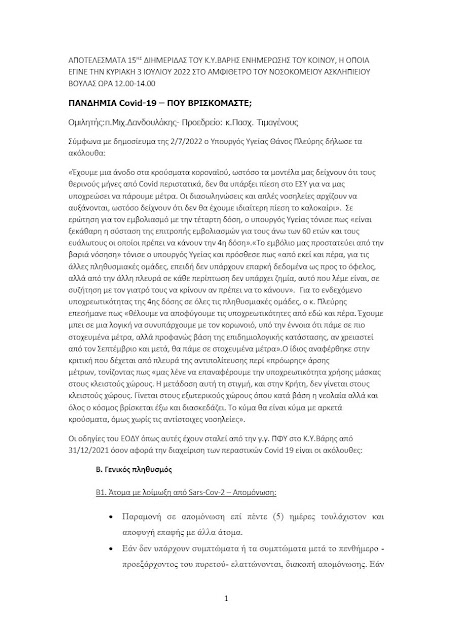



 See full infographic
See full infographic
 The 12th meeting of the EU-Israel Association Council took place in Brussels on 3 October, and discussed EU-Israel bilateral relations and global and regional issues
The 12th meeting of the EU-Israel Association Council took place in Brussels on 3 October, and discussed EU-Israel bilateral relations and global and regional issues